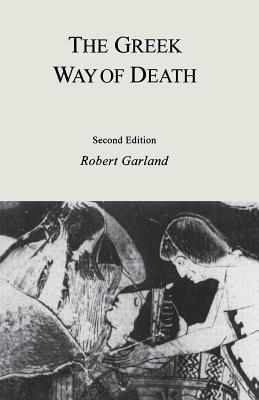Surveying funerary rites and attitudes toward death from the time of Homer to the fourth century B.C., Robert Garland seeks to show what the ordinary Greek felt about death and the dead. The Second Edition features a substantial new prefatory essay in which Garland addresses recent questions and debates about death and the early Greeks. The book also includes an updated Supplementary Bibliography. Praise for the first edition: "This [volume] contains a rich and remarkably complete collection of the abundant but scattered literary, artistic, and archaeological evidence on death in the ancient world as well as an extensive bibliography on the subject. Robert Garland conceives of death as a process, a rite of passage, a mutual but changing relationship between the deceased and [his or her] survivors.... A most useful collection of evidence, sensibly organized (no small feat) and lucidly presented.... A valuable source on the Greeks and on the always-lively subject of death."--American Historical Review "Much can be learned from this engaging survey of popular attitudes toward death, the dying, and the dead in Greece down to the end of the Classical period.... Appealing to scholars and the general audience."--Religious Studies Review

Surveying funerary rites and attitudes toward death from the time of Homer to the fourth century B.C., Robert Garland seeks to show what the ordinary Greek felt about death and the dead. The Second Edition features a substantial new prefatory essay in which Garland addresses recent questions and debates about death and the early Greeks. The book also includes an updated Supplementary Bibliography. Praise for the first edition: "This [volume] contains a rich and remarkably complete collection of the abundant but scattered literary, artistic, and archaeological evidence on death in the ancient world as well as an extensive bibliography on the subject. Robert Garland conceives of death as a process, a rite of passage, a mutual but changing relationship between the deceased and [his or her] survivors.... A most useful collection of evidence, sensibly organized (no small feat) and lucidly presented.... A valuable source on the Greeks and on the always-lively subject of death."--American Historical Review "Much can be learned from this engaging survey of popular attitudes toward death, the dying, and the dead in Greece down to the end of the Classical period.... Appealing to scholars and the general audience."--Religious Studies Review